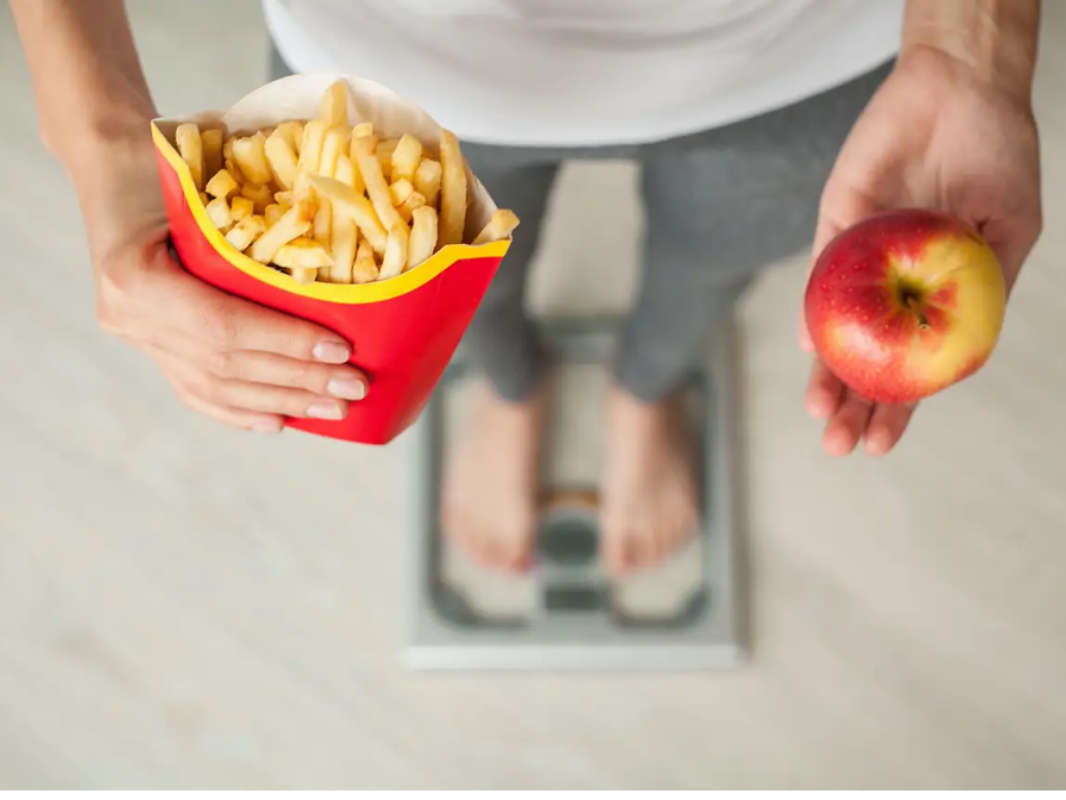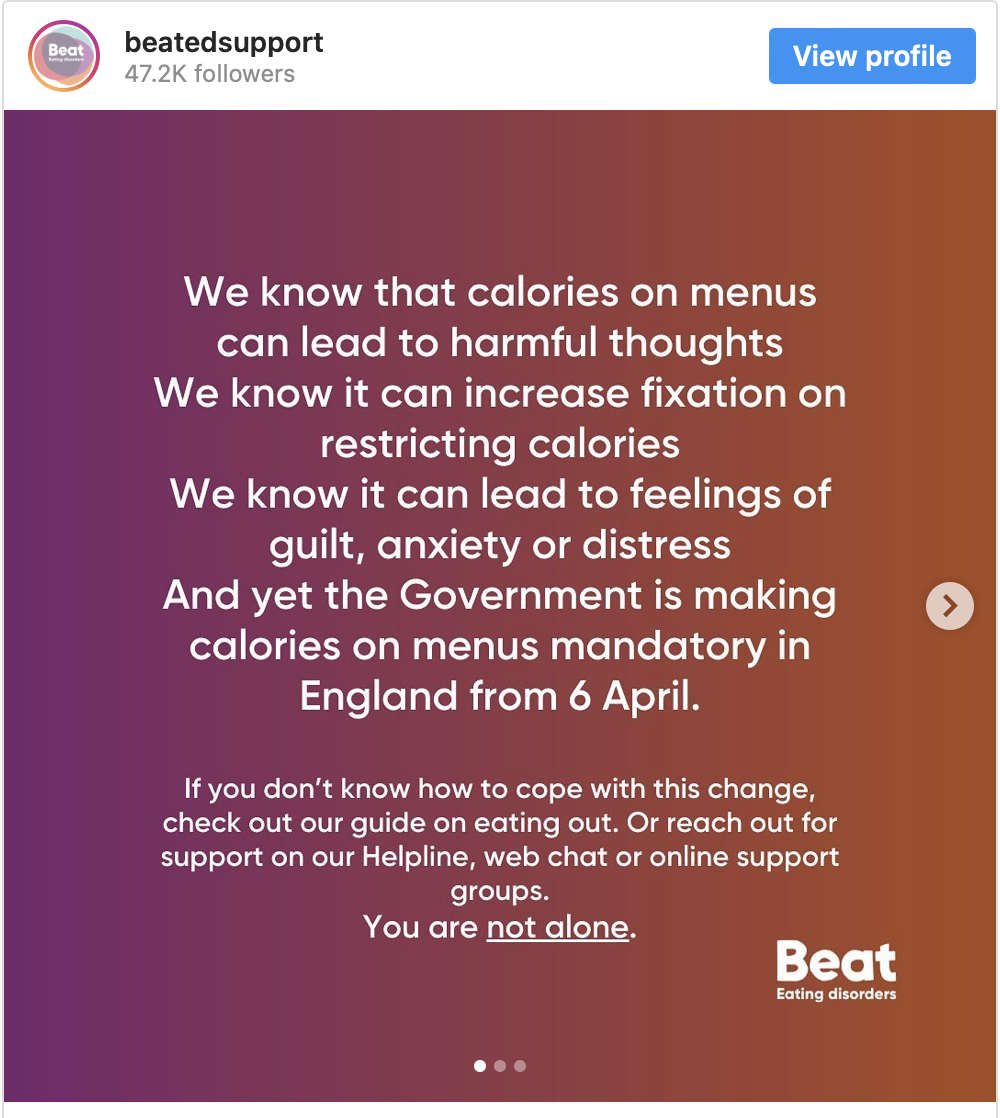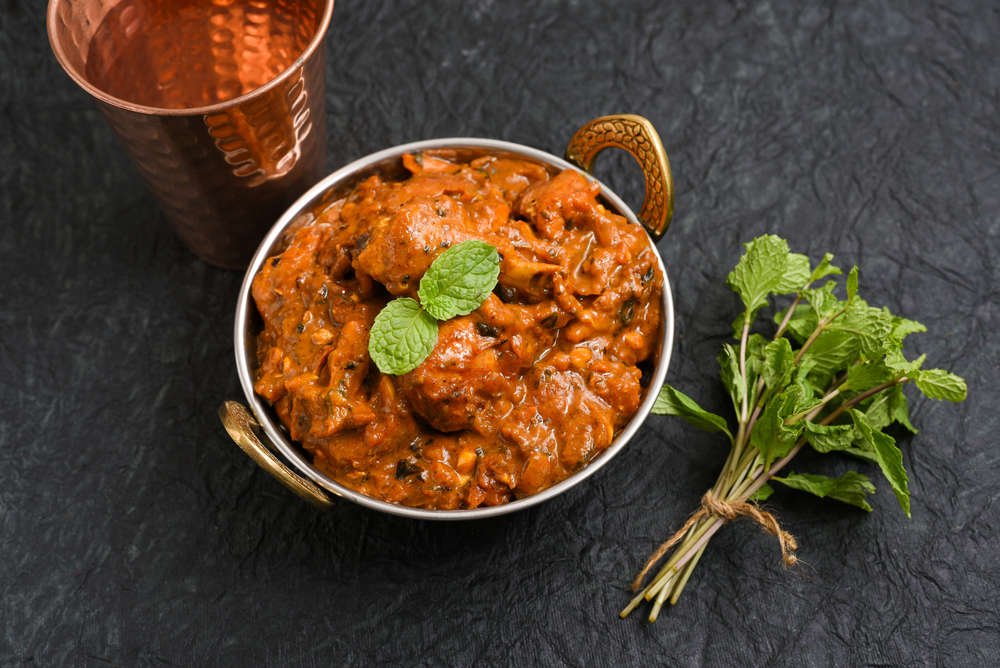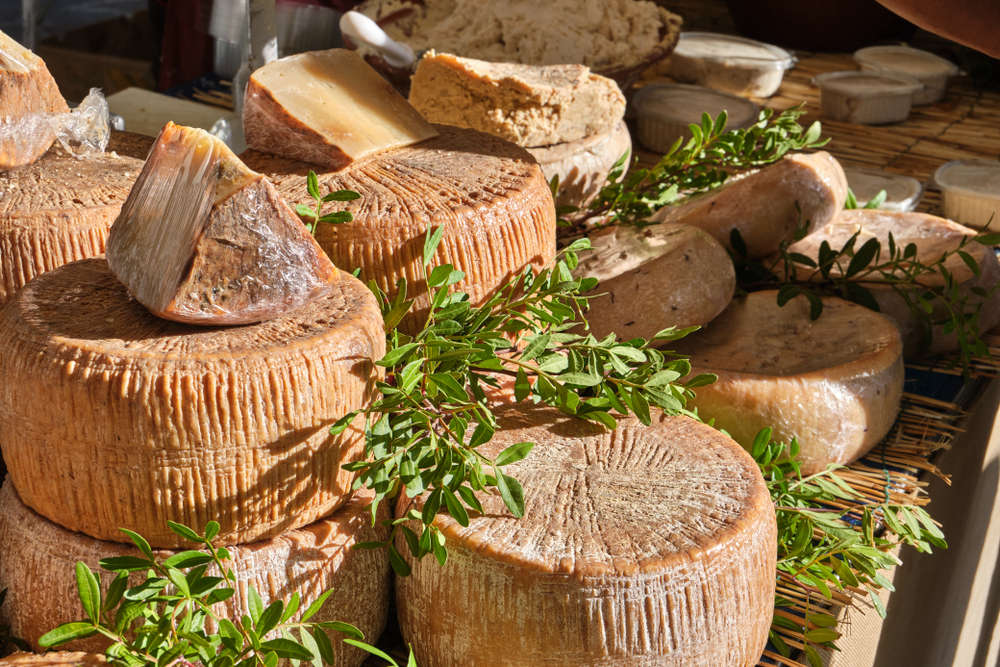
Calorie information will now be featured on menus at any restaurant with over 250 staff as part of a Government drive to tackle obesity in the UK.
Affecting cafes, restaurants and takeaways, the information must be displayed on any non-prepacked food and soft drinks prepared for customers.

Johanna Bolinder, nutritionist and head of health and sustainability at Spoon Guru, says:
“Consumers can now make informed choices and get more information on the items they are choosing to eat.
“Whether this policy will have a large impact on reducing calories in the UK diet or not is still uncertain, as much of consumer food choice still needs elements of self-regulation, this continues to be underpinned through educating consumers on healthier choices.”
What are calories?
A calorie is a unit of measurement for energy within food and drink. Calories are an indicator of the amount of energy in the food that your body can use to function. If you consume more calories than your body can use, energy becomes fat.
How many should you be having?
According to the NHS, the recommended daily calorie intake is 2,000 calories a day for women and 2,500 for men. However, if you are more or less active you may choose to alter this slightly.
Factors like your age, lifestyle, and metabolism may mean you decide to consume a different number of calories. If you workout three days a week and work in a very physical job, you may need to raise your calorie intake so that you have enough energy to function.
‘Good’ vs ‘bad’ calories
All food contains calories, but some foods are better for us than others. If there are 300 calories in five chocolate bars or 300 calories in a fruit salad, they are not equally healthy. All calories are not created equal and we need to look at the nutritional profile of the food as a whole. While being aware of calories can be a good first step in trying to improve your diet, the numbers on a menu will not be giving you the full picture.
What else can you look at?
You cannot know the full affect of the food you eat, just by looking at the amount of energy in it. Instead, if you want a bigger picture for health or weight loss reasons, it may be better to look at protein, sugar and carbohydrate content.
Micronutrients are also very important and when looking at calories you may often miss important vitamin and mineral information.
Pauline Cox functional nutritionist for Wiley's Finest sustainable fish oils, says:
“An avocado would be considered a high calorie food, however its impact on our blood sugar levels is very low. It is a highly nutrient rich food with good levels of healthy fats.
“Understanding the impact food has on our blood sugars, insulin and metabolic health is crucial in helping to prevent chronic diseases that are driven by poor metabolic health.”
Will showing calories on menus help people live more healthily?
If someone is eager to lose weight or is concerned about their health. Calories are a good starting point, but they are not a one-size-fits-all solution to the obesity problem.
Cox says:
“Calorie counting can lead to weight loss. However, it may not result in sustainable weight loss and health. Too few calories can lower our metabolic rate. This is why many low-calorie diets often result in, over the long run, individuals gaining weight.
“As we restrict our calorie intake, our metabolism lowers to account for the fewer calories. Hunger ensues, satiety levels waver and over time we cannot sustain the deprived diet that is often low in healthy fats and can be nutrient-deficient.”
Could there be an impact on mental health?
Some mental health campaigners have been against the calorie count legislation with fears it will further perpetuate growing numbers of people developing eating disorders.
An estimated 1.25 million people in the UK suffer from eating disorders according to the charity BEAT, with calorie counting being a prominent symptom of these illnesses.
Cox says:
“Having calorie counts on a menu sends out the wrong message to the general public. It suggests that it doesn’t matter what you eat, as long as it fits within a number. The prevailing narrative that we need to ‘eat less calories’ is outdated and fails to acknowledge the increasing body of research that suggests what we eat and when is more important than the calorific value.”


 Five Fantasy Worlds We’d Love To Explore In Real Life
Five Fantasy Worlds We’d Love To Explore In Real Life
 Five Amazing Global Meals To Cure The January Blues
Five Amazing Global Meals To Cure The January Blues
 Five Incredible Spas Around the World
Five Incredible Spas Around the World
 Five Fab Wellbeing UK Destinations Ideal in January
Five Fab Wellbeing UK Destinations Ideal in January
 Five Weird Wellbeing Foods Around The World
Five Weird Wellbeing Foods Around The World